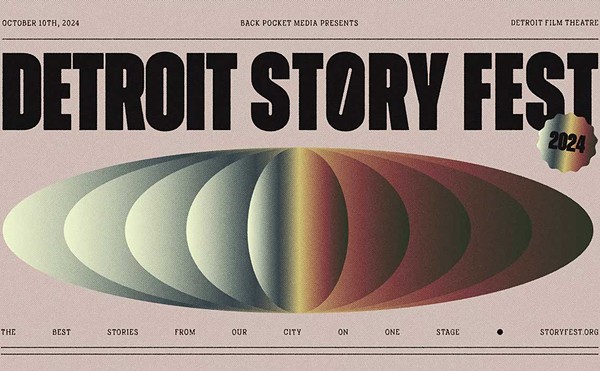San Francisco. 1876. Tom Cruise, as Civil- and Indian-War veteran and expert marksman Nathan Algren, is getting drunk. He’s about to go onstage to demonstrate the remarkably accurate properties of the Winchester rifle at a centennial celebration. He’s slumped in his chair, not listening to the hawker singing his and the rifle’s praises. It’s a potent moment. Disillusionment. The commercialization of war’s tragedy. The destruction of a man’s soul.
Nathan manages to stumble onto the stage. He spices up the prepared text (provided by cue cards) with words that are obviously bubbling from the dark place that has witnessed all the bloodshed, participated in the horror of unceasing battle. This should be as powerful as the shots of him sitting silently, head hanging in submission to the alcohol and the pain. But it
isn’t. The reason?
Tom Cruise can now be completely seen and heard as he feebly attempts to channel this fallen hero. He is no longer in the shadows. He has a clean and expertly parted Partridge Family hairdo and a well-trained beard and beautiful skin that radiates with Scientologic pleasantness. He is not Nathan Algren. He could never be Nathan Algren. He doesn’t even know how to talk like a drunk, fer chrissake. This is not a movie so much as it is a vehicle to assuage the perception that Tom Cruise could never play a real hard-ass (think of Mel Gibson in Braveheart or Russell Crowe in Gladiator or Humphrey Bogart in anything).
I can just hear Cruise’s “people”: “Tom, baby. You’ve done everything! You’re beautiful, baby! You know what, though? You’ve never been a hero! You’ve never been a scarred, tortured, resilient, sexy warrior, Tommy boy! But we’re gonna fix that! We got this kind of movie down to a science, Tom-bo. Two cultures pitted against each other, foreign lands, sweeping vistas, tender moments with the ladies, fighting and battles and so much blood flying it’ll put chills up your spine! Start growing that hair! Practice being someone who’s actually been through something! Maybe grow a couple inches, talk all philosophical and stuff. Be historical!”
With Cruise producing and Edward Zwick (known for Glory and Legends of the Fall) directing, this is what they came up with: Nathan’s old army colonel and an evil Japanese capitalist associated with the emperor recruit Nathan to train the peasantry into a functional army. They need this army to suppress a rebellion that has been waged against the modern, profiteering, American-backed soulless devils who are spoiling the Eden that is Japan. The rebels are a small, endlessly noble, endlessly honorable tribe of samurai who are attacking the emperor’s railroad tracks and other strategic assets and just basically pissing off the emperor’s slimy right-hand man, Omura.
Nathan takes up this mercenary challenge and sails to Japan with fellow soldier and all-around lovable rake Zebulon Gant (Billy Connolly, who should have been offered the Nathan role; now there’s an actor who can play drunk, disillusioned and cynical). Nathan tries to do the job he’s being paid for, but the men he is entrusted with are farmers. They need more training than the emperor’s men have patience for. They not only get slaughtered in their first encounter with the “Noble Tribe of Samurai,” but poor Nathan gets kidnapped. He is saved from a sure death because the leader of this “Noble Tribe of Samurai” witnesses Nathan take on 10 of his own men and fight them with skills he must have channeled from the rich loam of the Japanese forest. Katsumoto, the leader, played by Ken Watanabe, takes him to his village, provides a nurse (the widow of a man Nathan killed in battle), and proceeds to show him the gentle, enlightened and superior way of the samurai.
Nathan now has a salve for all the cynicism, all the pain and loss he has suffered lo these many years. It is the way of “the samurai.” Honor over vanity. Sacrifice over personal gain. Talking slowly and meaningfully about cherry blossoms and death against the foggy blue background of the mountainside. Nathan joins the “Noble Tribe of the Samurai” and goes to battle against the now mechanized divisions of Omura’s army. Nathan knows they cannot win, but he will lead these honorable and noble men to an honorable and noble end anyway.
It’s a big, empty, overblown, predictable nothing. The two points on the acting spectrum that Nathan’s character must nail are missing from Cruise’s repertoire: cynicism and nobility. He’s much better at smarmy, rigid, and pretty.
Two stars for one gorgeous shot of a cherry tree losing its white and pink petals in a Japanese breeze.
Dan DeMaggio writes about film for Metro Times. E-mail [email protected].





